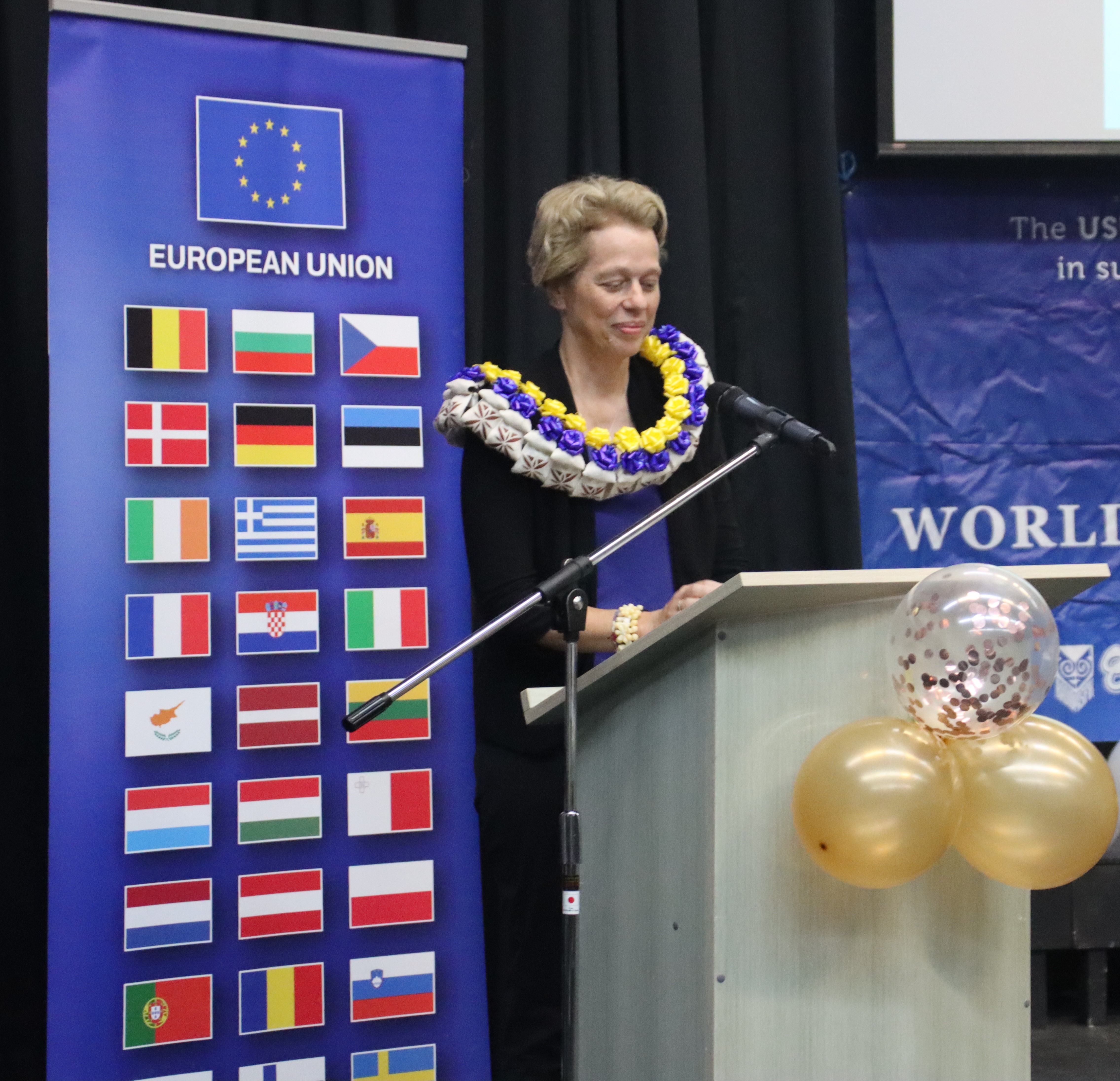By Kaneta Naimatu in Suva
Journalists in the Pacific region play an important role as the “eyes and ears on the ground” when it comes to reporting the climate crisis, says the European Union’s Pacific Ambassador Barbara Plinkert.
Speaking at The University of the South Pacific (USP) on World Press Freedom Day last Friday, Plinkert said this year’s theme, “A Press for the Planet: Journalism in the face of the environmental crisis,” was a call to action.
“So, I understand this year’s World Press Freedom Day as a call to action, and a unique opportunity to highlight the role that Pacific journalists can play leading global conversations on issues that impact us all, like climate and the environment,” she said.
- READ MORE: Other Pacific climate crisis reports
- The EU Pacific Ambassador Barbara Plinkert’s full WPFD2024 speech

“Here in the Pacific, you know better than almost anywhere in the world what climate change looks and feels like and what are the risks that lie ahead.”
Plinkert said reporting stories on climate change were Pacific stories, adding that “with journalists like you sharing these stories with the world, the impact will be amplified.”
“Just imagine how much more powerful the messages for global climate action are when they have real faces and real stories attached to them,” she said.

Reflecting on the theme, Plinkert recognised that there was an “immense personal risk” for journalists reporting the truth.
99 journalists killed
According to Plinkert, 99 journalists and media workers had been killed last year — the highest death toll since 2015.
Hundreds more were imprisoned worldwide, she said, “just for doing their jobs”.
“Women journalists bear a disproportionate burden,” the ambassador said, with more than 70 percent facing online harassment, threats and gender-based violence.
Plinkert called it “a stain on our collective commitment to human rights and equality”.
“We must vehemently condemn all attacks on those who wield the pen as their only weapon in the battle for truth,” she declared.
The European Union, she said, was strengthening its support for media freedom by adopting the so-called “Anti-SLAPP” directive which stands for “strategic lawsuits against public participation”.
Plinkert said the directive would safeguard journalists from such lawsuits designed to censor reporting on issues of public interest.
Law ‘protecting journalists’
Additionally, the European Parliament had adopted the European Media Freedom Act which, according to Plinkert, would “introduce measures aimed at protecting journalists and media providers from political interference”.
In the Pacific, the EU is funding projects in the Solomon Islands such as the “Building Voices for Accountability”, the ambassador said.
She added that it was “one of many EU-funded projects supporting journalists globally”.
The World Press Freedom event held at USP’s Laucala Campus included a panel discussion by editors and CSO representatives on the theme “Fiji and the Pacific situation”.
The EU ambassador was one of the chief guests at the event, which included Pacific Islands Forum (PIF) Secretary-General Henry Puna, and Fiji’s Environment and Climate Change Secretary Dr Sivendra Michael was the keynote speaker.
Plinkert has served as the EU’s Ambassador to Fiji and the Pacific since 2023, replacing Sujiro Seam. Prior to her appointment, Plinkert was the head of the European External Action Service (EEAS), Southeast Asia Division, based in Brussels, Belgium.
Kaneta Naimatau is a third-year student journalist at The University of the South Pacific. Wansolwara News collaborates with Asia Pacific Report.

This post was originally published on Asia Pacific Report.